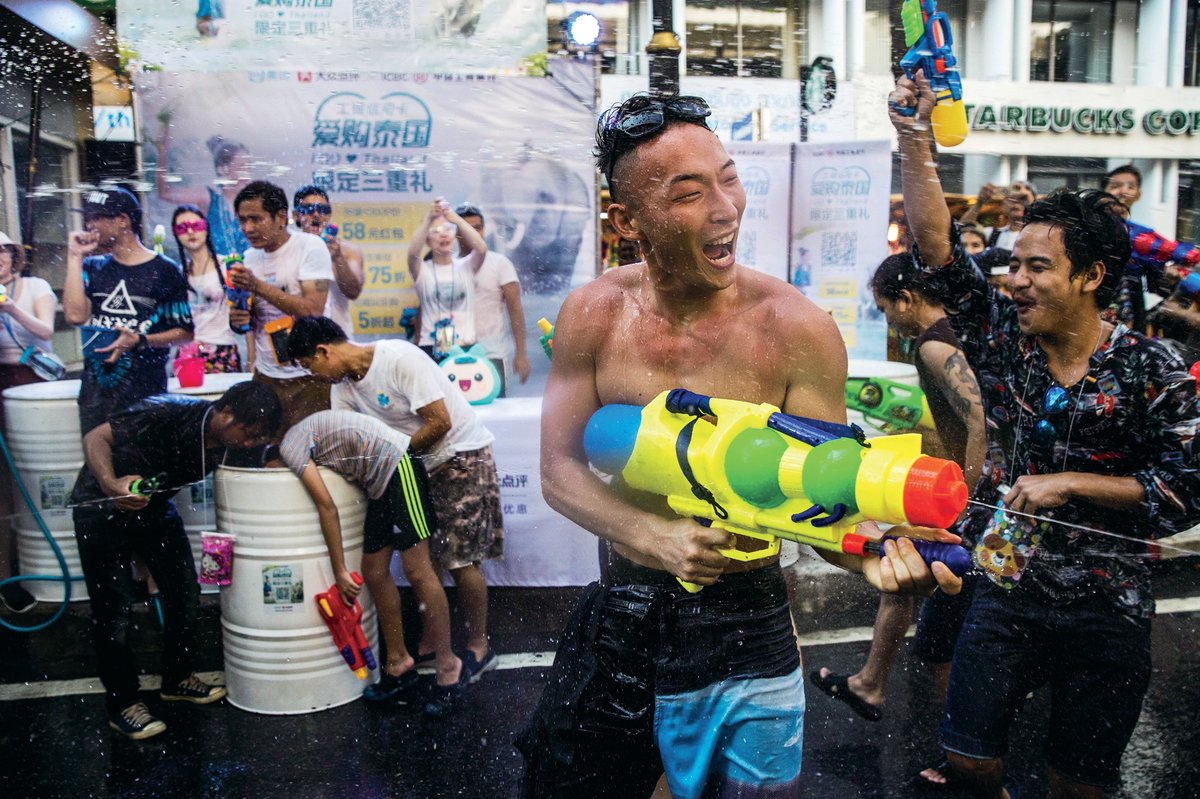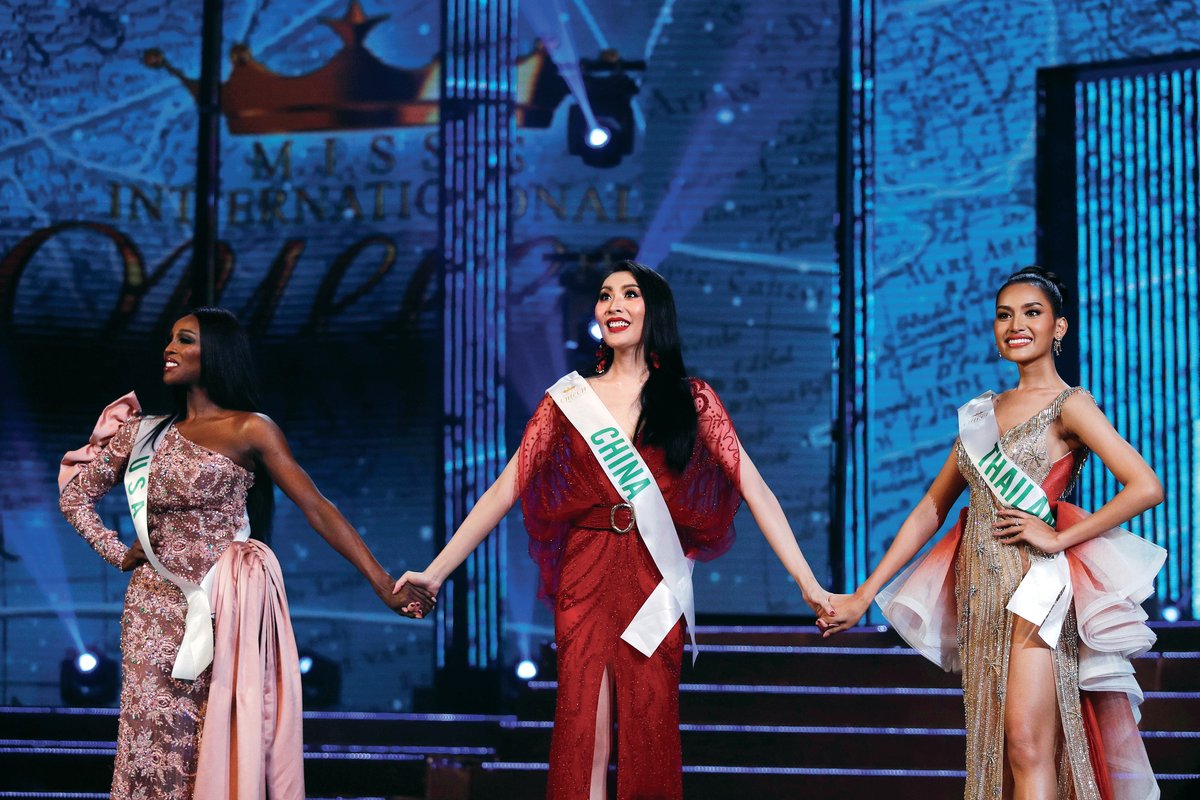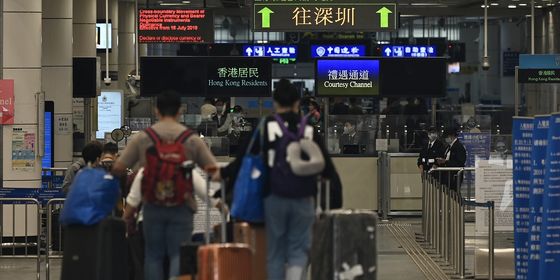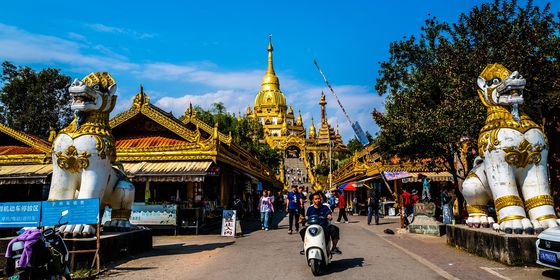Thailand draws LGBT Chinese seeking tourism, medical care, and acceptance.
“He’s a baby gay,” Caleb declared, introducing a newcomer from his Sichuan hometown to a group of friends on a night out in Thailand’s southern island of Phuket.
In a darkened corner of ZAG Club, shrouded in roving blue beams of light and booming dance music, the group debated which men on the catwalk most struck their fancy.
Caleb’s friend shyly pointed to a man in white underwear with a striking smile. When they succeed at waving him over, Caleb poured the man a shot of whiskey. “Can you speak Chinese?” Caleb asked. “Yi diandian,” replied the man, smiling—just a little.
After a stunted attempt at conversation, Caleb’s friend took a consolatory gulp of his drink and told TWOC that he’s just over 30, and requested anonymity, as he is married back in China. “I did it for my family,” he explained, nodding to intense pressures in China to fulfill one’s filial duty by marrying and having kids, especially in the generation of single children.
“My wife and I have no sex life, except when we had my son. He’s 6 now,” he said. “I tell them I’m going on vacation with friends. I’ve been to ZAG many times.”
Thailand’s openness to sexual orientation and gender identity, especially in its cities and tourist-saturated islands, draws a growing number of LGBT Chinese in search of a place to explore their sexuality, hold hands in public, and receive gender-affirming medical care.
One of few countries in Asia to have signed the UN declaration on LGBT rights, Thailand has a comprehensive anti-discrimination law covering sexual orientation and gender identity, one of many legal protections that Chinese advocates are still fighting for. A bill that legalizes same-sex partnerships will be debated in parliament in the coming months.
While the country has a way to go on many fronts—including full LGBT marriage rights, and the right to change one’s gender on legal documents—it has sought to position itself as a “gay paradise” in efforts to grow its tourist economy.
“Thailand welcomes every color under the rainbow,” asserts the Tourism Authority of Thailand’s official campaign to draw LGBT tourists, “Go Thai, Be Free.” The campaign calls Bangkok, the Thai capital with a population of 12 million, “Asia’s most LGBT+ welcoming metropolis.”
Tourism comprises between 10 and 15 percent of Thailand’s economy. Last year, about one in three visitors hailed from China, amounting to 11 million Chinese tourists, who spent 18 billion USD in the country. As Chinese tourists form a growing presence in the Southeast Asian kingdom, there are increasing offerings and experiences catering specifically to LGBT Chinese.
Special “gay travel” itineraries include visits to the most famous gay massage parlors and clubs, and stays at gay-friendly hotels. Some Chinese tour companies offer “rainbow cruises,” with promotional materials showing rainbow flags fluttering in the sea breeze as visitors dance with Thai models.
One promotional video for “Go Thai, Be Free” shows LGBT couples taking photos of each other while caring for playful elephants, and swimming on rooftop infinity pools in each other’s arms, in slow motion to an emotive soundtrack. On Weibo, a man from Guangzhou replied that it “made me cry.” A 30-year-old from Chengdu commented, “Let’s earn more money to retire in Thailand.”
Many Chinese LGBT, enamored by their visits, look into the possibility of a longer stay. According to a consumer report by the Chinese international property platform Juwai in 2018, Bangkok and Phuket were the top two choices for Chinese LGBT property buyers in Southeast Asia, ahead of Phnom Penh, Manila, and Ho Chi Minh City.
Carrie Law, the chief executive of Juwai, stated on the website that Chinese LGBT probably account for 5 to 8 percent of property-buying inquiries in Bangkok. Around 45 percent of buyers say that the purchase is for their own home, and 13 percent say it is for a holiday home, suggesting a desire to live there rather than pure investment.
This year’s Spring Festival was Mr. Chen’s first visit to Thailand. Dreading the probing questions of relatives, the Sichuan native decided to spend the family holiday traveling alone instead of going home. He had heard in the gay bars of Chengdu that Bangkok is “a gathering place for comrades,” using the term tongzhi (同志), which literally means “same orientation.”
Chen’s first stop was Bangkok’s “Boy Street,” an alley on the sprawling adult entertainment complex near Silom with equal-sized English and Chinese neon signs advertising “hot males.” Upon entering a venue, he found a burlesque performer on stage dressed like concubine Yang Yuhuan, one of the “Four Great Beauties of ancient China,” lip-syncing to the Cantonese classic “Clouds Chasing the Moon.”
Before the darkened stage, servers fluttered about in red qipao with gold-rimmed collars as the announcer reminded the audience, in English and then in Chinese, not to take pictures before the fully nude show. After the show, visitors are encouraged to chat with the performers, and many arrange to meet for sexual services on WeChat (few industries in Thailand remain unchanged by growing Chinese clientele, including the often exploitative sex industry).
Chen flew back to China already eager for his next trip, reminiscing of a week full of “food, scenery, fun, and sex.”
While some flock to Thailand for its freewheeling nightlife, others arrive along the long and torturous road of self-acceptance.
Before Sisi traveled to Thailand for sex reassignment surgery in 2014, the recent college graduate in Beijing wrote through an account on Zhihu of over two painful decades of gender dysphoria, declaring, “This autobiography is my best suicide note. If something goes wrong and I don’t come back alive, I hope everyone will read and share it.”
Sisi recounted a lifetime of confusion and disgust toward her birth body. As a child, she was enamored by a pair of red pantyhose her father brought home from his sock factory, but was aware even at a young age that they were not appropriate to wear outside the home on a boy’s body.
In elementary school, she refrained from drinking water so that she wouldn’t have to use the boy’s restroom at school. In high school, she always chose female characters as avatars in online games. “I could not agree with my own body,” she wrote, “I sank into depression.”
It was with quiet desperation that Sisi bought a plane ticket to Thailand for sex reassignment surgery, in search of medical care that could help her align her body with her gender.
Although the Chinese government keeps no official statistics, the NGO Asia Catalyst estimates there are 4 million transgender people in China, the majority of whom are assumed to live closeted lives, often suppressing their incongruous thoughts and anxieties in an atmosphere that is still largely hostile to gender and sexual minorities. The dearth of professional medical and psychological services in China has helped create a dangerous black market for gender adjustment treatments shrouded in misconceptions, stigma, and red tape.
In 2018, around 3 million visitors, or 9 percent of all tourists, sought medical care during their stay in Thailand. According to the WHO, around 30 percent of foreigners receiving healthcare in Thailand were medical tourists. In order to facilitate longer stays, the Thai government extended the medical tourism visa stay for China and four other Asian countries from 30 to 90 days in 2017.
In the sprawling tropical Thai capital, the lobby of Kamol Hospital features gleaming white marble floors, plush red couches and glass coffee tables, fresh flowers, and a framed portrait of the Thai king. It is more reminiscent of a luxury hotel than a surgical ward that has performed tens of thousands of sex reassignment procedures since 1997. Chinese interpreters are readily available on site.
Guangdong singer Shi Yaxin, known by her stage name “Yaya,” arrived at Kamol in 2016 having already undergone surgery in Guangzhou. However, the 29-year-old called the experience so “terrifying” and “painful” that she “thoroughly lost faith in Chinese health care,” she declared in a vlog posted to the video streaming platform Bilibili.
Medical treatments such as sex reassignment and facial and vocal feminization surgery are still in their infancy in China. Just last year, the Peking University Third Hospital launched the country’s first integrated care program for transgender care. Individual surgeons are sometimes willing to operate; however, all but a few lack experience specific to sex reassignment procedures.
“For me, surgery was liberation. I used to be afraid if I walked on the streets, the way people looked at me,” said Yaya. On her Facebook fan page, she declares she is “born in China, made in Thailand.”
In 2019, three years after her transition, Yaya took the spotlight beside transgender women from 20 countries in the world’s largest transgender beauty pageant, Miss International Queen, and won third place. She decided to stay in Thailand to perform in the Tiffany’s Show in Pattaya, one of the world’s premiere transgender cabarets.
Yaya sees her performance as an outreach effort, a showcase of transgender talent. “I want Chinese people to know what it means to be transgender. I think the scariest thing is silence. People fear what they don’t know.”
A classically trained vocalist, Yaya sings Chinese pop hits for a global audience, many of whom are Chinese tour groups. She explains to them in Chinese that all transgender people are worthy of respect.
“I’ve already made it through the darkness. I’m not afraid of anything anymore,” Yaya shrugs and flicks her palms in the air. “I’ve told the whole world: I am transgender, so what?”
Over the Rainbow is a story from our issue, “High Steaks.” To read the entire issue, become a subscriber and receive the full magazine.














